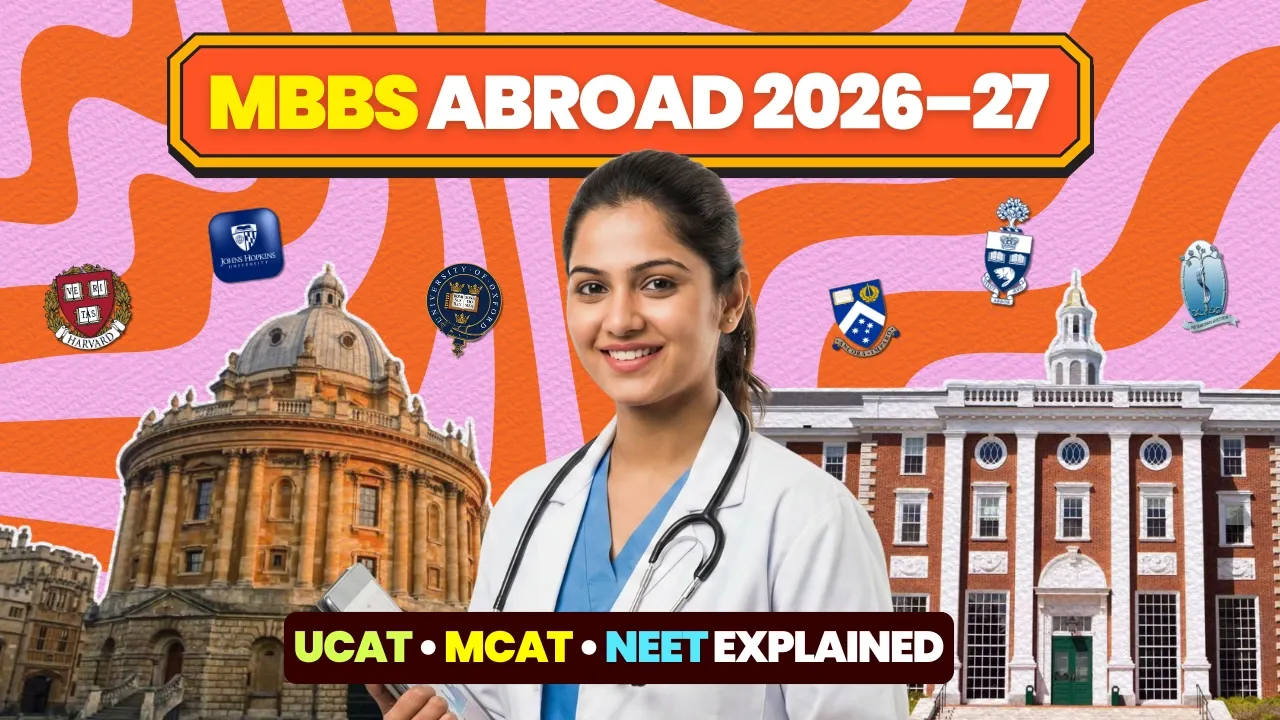Expert Insights
Why Employers Want Business Grads Who Speak the Language of Tech

Leap Scholar spoke with Matthew Cole , Dean and Professor at the College of Business and Information Technology (CoBIT), and Mina Jena Director of Business Programs at Lawrence Technological University . They share valuable insights on how the business education landscape in the U.S. is shifting toward technology-driven careers, the growing importance of STEM-designated programs, and the strategies international students can use to build successful, future-ready careers.
1. How is the current hiring landscape for business graduates in the US? Are consulting and finance still the top recruiters, or are you seeing shifts?
For our College of Business and Information Technology (CoBIT), the landscape is strong. The AACSB accreditation positions our graduates in the top 8% of business schools worldwide, giving them a competitive advantage. While consulting and finance remain lucrative, a major shift, especially here in Southeast Michigan, is the massive demand for business graduates with deep technological skills. The regional economy is being transformed by Industry 4.0 (think AI for business, advanced manufacturing, defense, and a booming tech/analytics sector. Companies are now recruiting for hybrid roles: business analysts who understand data, finance managers who understand financial analytics and cybersecurity, and marketers who understand AI. This is where our graduates excel, as CoBIT is part of Lawrence Technological University, a premier STEM-focused institution. Our curriculum is specifically designed to "create innovative business professionals equipped with technological skills”.
2. What industries are absorbing the largest number of business graduates?
Given our location in Southeast Michigan, our graduates are well-positioned to enter the region’s high-growth sectors. The largest absorption is seen in advanced manufacturing, which includes not only the “Big Three” (Ford, GM, and Stellantis) but also a vast ecosystem of suppliers and technology companies shaping the future of mobility. Detroit’s booming technology and data services sector also offers strong opportunities, with graduates securing roles as data scientists, business analysts, and information security analysts at organizations ranging from startups to major corporations like Hantz Financial. Additionally, the professional and corporate services sector continues to be a major recruiter, with the “Big Four” accounting and consulting firms, such as Deloitte and PwC, alongside large corporate headquarters in the region actively hiring. Finally, defense and aerospace remain significant and stable employers in Southeast Michigan, consistently seeking graduates skilled in organizational leadership, finance, accounting, and project management.
3. How do current visa and immigration policies affect the opportunities available to international MBA and business students?
Irrespective of how visa policies evolve, an American education, especially one from a STEM-focused university like LTU, continues to open doors to countless opportunities. The primary challenge for international students is navigating the post-graduation visa process. Employers are often hesitant about the complexity and uncertainty of H-1B sponsorship. However, CoBIT has a critical, strategic advantage. Many of our programs, such as the STEM MBA, MS in Business Data Analytics, and the MS in Information Technology, are officially STEM-designated. This is a game-changer. It makes our graduates eligible for the 24-month STEM OPT extension, making them significantly more attractive to employers, especially in the high-demand tech and analytics fields.
4. What strategies do you recommend for international students who face these challenges?
Our advice is to be proactive and strategic in planning your career path. Prioritizing a STEM-designated program is the single most important step—enrolling in a degree such as our Business Data Analytics program qualifies students for the 24-month STEM OPT extension, providing up to three years of work authorization. This makes graduates significantly more valuable and lower-risk hires for employers. It’s equally important to stay informed and compliant by understanding all visa regulations, deadlines, and policies. Students should also make full use of the International Programs Office (IPO) to explore every available opportunity for CPT, OPT, and the STEM OPT extension. Finally, maximizing practical experience through internships under CPT is crucial, as a successful internship often serves as the most direct path to a full-time offer and eventual H-1B sponsorship.
5. How should students approach networking and seek referrals?
A university is both an academic and a professional community, and at LTU, we emphasize that “networking is net worth.” Students are encouraged to build strong relationships with faculty both inside and outside the classroom. Many of our faculty members are “professors of practice” with extensive industry experience and deep connections across Southeast Michigan, making them invaluable sources of mentorship, guidance, and strong references. We also provide structured networking opportunities through formal initiatives such as our “Executive 2 Executive” series, which connects students directly with C-suite leaders, and alumni networking events. In addition, LTU’s signature “theory and practice” model enables students to engage meaningfully with industry partners through co-ops, internships, and class projects—hands-on experiences that not only enhance learning but also serve as one of the most effective ways to secure professional referrals.
6. What are the most common mistakes you see business students making in their job search?
The two most common mistakes are a lack of networking and not starting the job search early enough. Graduating students should begin their search at least a year in advance. We urge students to attend career fairs even as freshmen to learn how to approach professionals. At LTU, we run several recruitment fairs throughout the academic year. LTU uses Handshake to connect students with employers. The other major mistake is not customizing resumes and cover letters. Students must research the company's mission and align their documents with it. In SE Michigan, a resume for a "business analyst" role at Ford's accounting division must look very different from one for a "consulting" role at Deloitte.
7. Could you share how alumni networks are helping current students land roles in highly competitive fields?
Our alumni network is deeply integrated, especially within the SE Michigan business and tech community. They help in three key ways:
- Formal Networking: We host an "Alumni Week" and other networking events that give students direct access to alumni in leadership positions.
- Mentorship & Referrals: LTU's emphasis on building professional relationships creates a strong referral culture. Our alumni are proud of their "theory and practice" roots and are active in mentoring students who demonstrate the same practical drive.
- Industry Panels: We regularly bring back successful alumni for career panels, which provide students with practical advice and a direct connection to someone in their target field.
8. What skills or experiences will give business graduates a long-term edge in the current situation?
The single biggest long-term edge is the one at the core of CoBIT: being a business professional with deep technological skills.
- STEM + Business: As a college within Lawrence Technological University, our curriculum connects STEM principles directly to business. Our graduates don't just use software; they understand data analytics, AI, cybersecurity, and Industry 4.0.
- Industry 4.0 Fluency: The SE Michigan economy is being rebuilt on high-tech manufacturing, mobility, and data. Our graduates speak this language from day one, giving them an immediate and lasting advantage over graduates from traditional business schools who lack that technical foundation.
9. Suggest a few strategies students should use in making their CVs and Cover Letters?
This directly relates to the mistake of not customizing. We teach three key strategies:
- Mirror the Job Description: The CV (resume) must include the keywords SE Michigan employers are searching for. For our students, that means "data analytics," "cybersecurity," "project management," and "AI for Business". This helps get past the automated screening (ATS) and shows the recruiter that the applicant is a match. The CV should also describe human/social interaction experiences, such as teamwork and clubs.
- Quantify Everything: Don't just list duties; show impact. Instead of "Helped with sales," use "Contributed to a class project that developed a model to increase sales leads by 10%."
- Use a "T-Format" Cover Letter: We recommend a simple two-column table. On the left, list the "Company's Requirements." On the right, list "My Qualifications." It's a direct, effective way to prove the applicant is the perfect candidate.
10. What advice would you give to international students balancing career aspirations with immigration realities in the US?
This is a significant challenge, and our advice is to be highly strategic.
- Prioritize a STEM-Designated Degree: This is the most critical step. CoBIT offers STEM-designated programs such as Business Data Analytics and Information Technology, which make international students eligible for the 24-month STEM OPT extension.
- Target the Right Industries: Southeast Michigan’s tech, mobility, and analytics sectors are booming and actively seeking talent with these specialized skills. Employers in the region are well-versed in the STEM OPT process and highly value the advanced capabilities it represents.
- Use CPT Aggressively: Use Curricular Practical Training (CPT) to get internships. Our location provides access to a vast number of relevant companies. A successful internship is the most straightforward and proven path to a full-time job offer and an H-1B sponsorship.
- Build a Global Network: The skills gained at CoBIT, especially in analytics and technology management, are in high demand globally. This gives international students multiple paths to a high-impact career, regardless of future visa policies.



